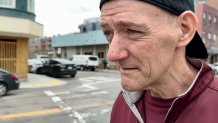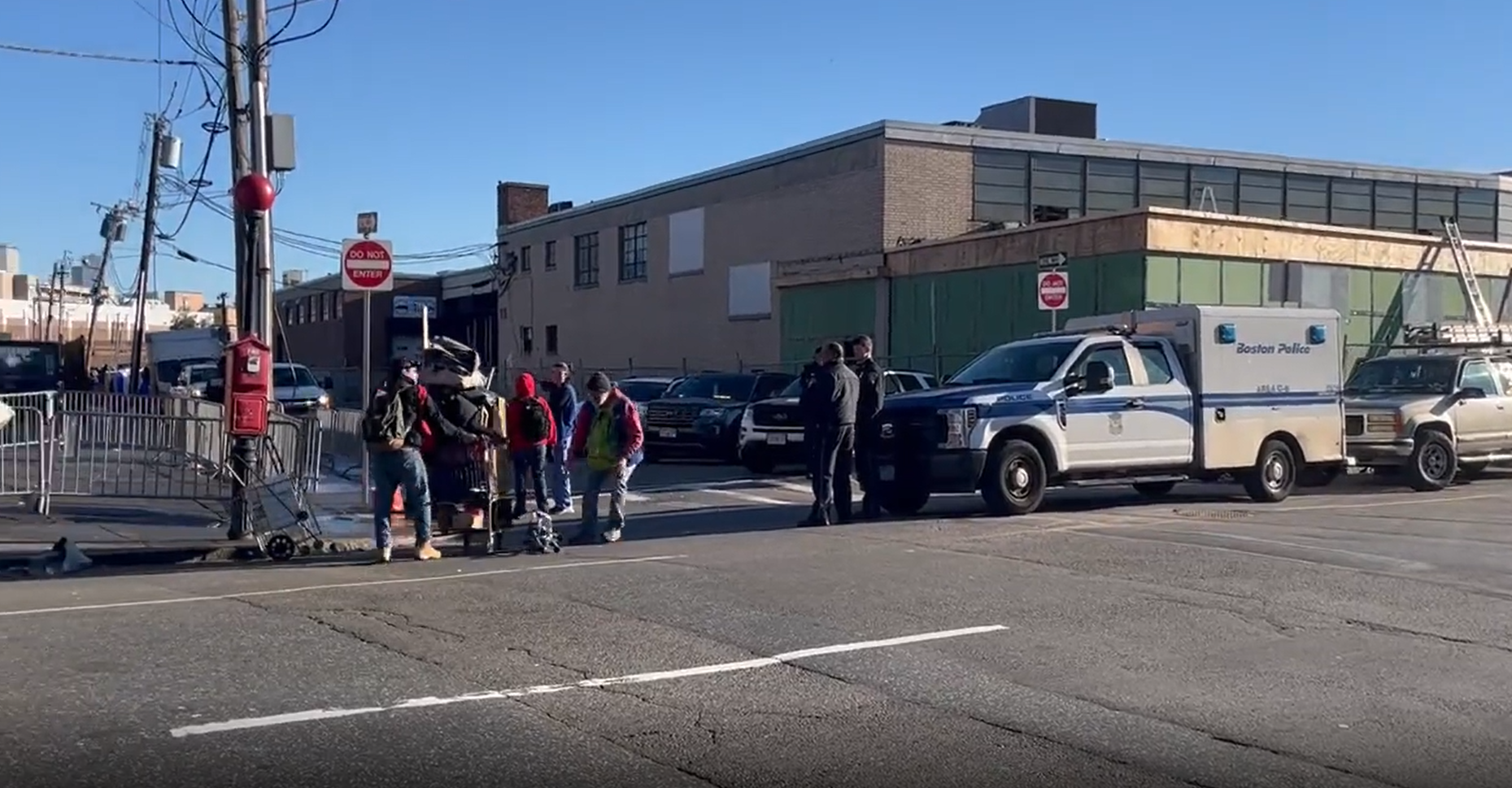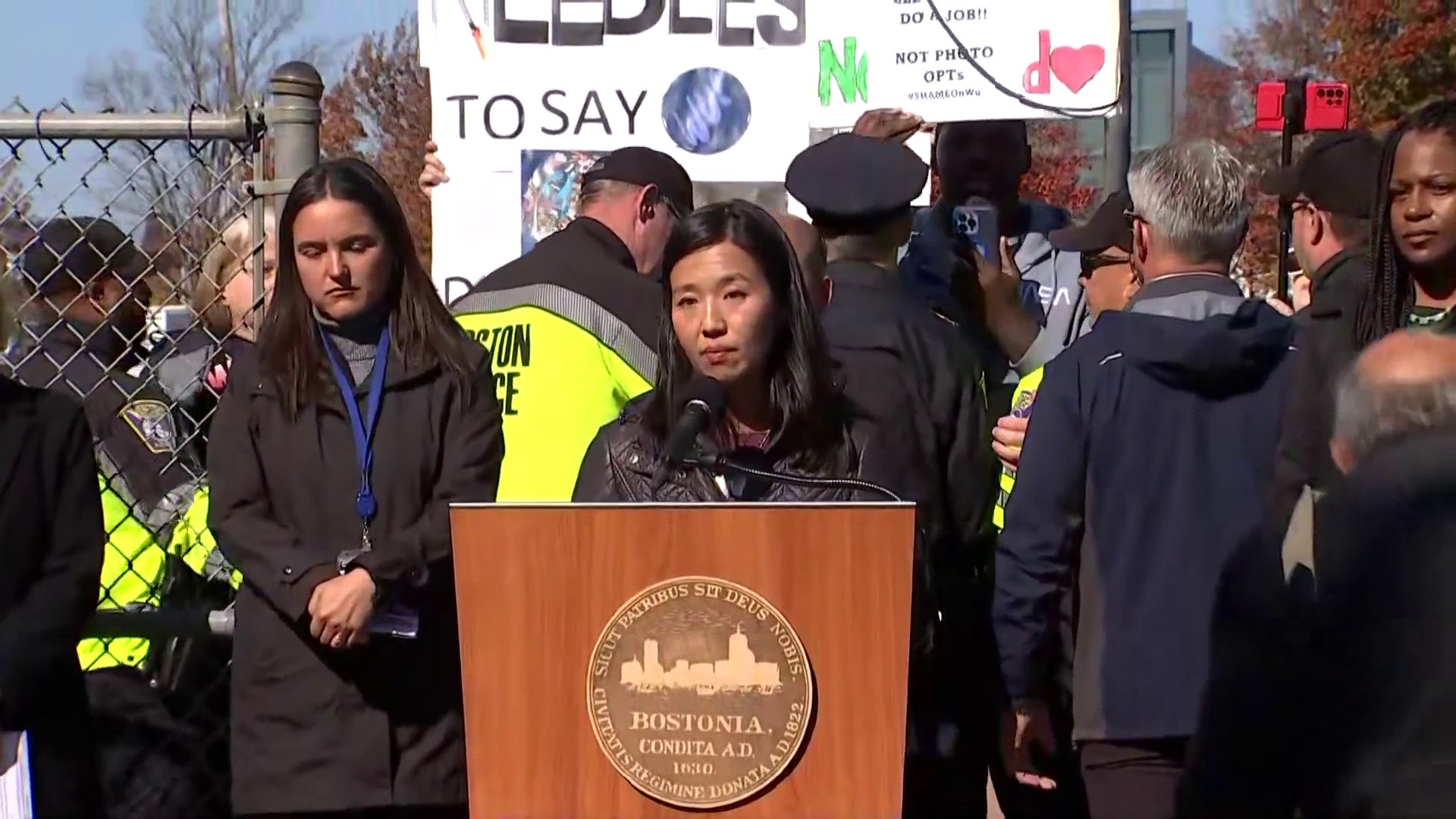Ronald Geddes has lived in this South End apartment in Boston for more than a year and a half.
“So I got my air fryer here, I got my microwave here, my coffeemaker. And I got plenty of cabinet space” he says showing us around.
If you look out the window, you can see where he used to live.
“I lived on that corner for about a year,” he said.
Get Boston local news, weather forecasts, lifestyle and entertainment stories to your inbox. Sign up for NBC Boston’s newsletters.
When we met Geddes in 2021, he was living in a tent on the corner of Southampton and Topeka streets in the area known as Mass and Cass. He used to put wooden pallets under his tents so the rats wouldn’t eat through it.

COVID-19 drove people like Geddes to Mass and Cass in search of food and health services. That resulted in a sprawling homeless encampment that stretched across the Newmarket area. Despite repeated attempts by the city to clear the area, tents continue to pop up.
“I think that the pandemic exacerbated many things, as we know, on so many levels” says Joyce Tavon, CEO of the Massachusetts Housing and Shelter Alliance.
Tavon is hearing from people across the state about the growing rise in homeless encampments.
The NBC10 Boston Investigators spent the last few months in Lowell visiting various homeless encampments to see how more people are being forced to live outdoors.
According to data released by the Department of Housing and Urban Development, since the COVID-19 pandemic started the unhoused population living in shelters has gone down, while the unsheltered population has gone up.
Tavon says the main driver of homelessness is the lack of housing. She says the state is short 200,000 units of housing across all income levels that are needed over the next 10 years.
“So all of that affects the people at the bottom the worst,” she said.
According to the U.S. Census, Massachusetts has the lowest rental vacancy rate in the country at only 2.8%.
It’s also one of the most expensive places to live. According to HUD, the average monthly rent for a studio apartment in the Boston metropolitan area is $2,025 a month. That’s up by more than $400 in just four years.
In April, the Massachusetts Alliance for Supportive Housing received $15 million in funding to create 360 units of housing across the state for people experiencing homelessness. That money will be spread across 18 communities.
Tavon said once people who experience homelessness get supportive housing, they thrive.
“Where someone has a roof over their head, a safe place and it's permanent and they have services. The typical retention rate in housing is 85 to 90%” she said.
According to HUD, people with housing choice vouchers in Massachusetts average 46 months on the waitlist before they find housing. It’s the third longest in the US behind New Jersey and Alabama. New Hampshire is just behind Massachusetts at 39 months.
Geddes waited 10 years to finally get his apartment.
Length of New England states' average waitlist for Housing Choice Vouchers, 2022
| State | Months' wait | Rank among U.S. states |
| Vermont | 15 | 11th |
| Maine | 26 | 30th (tie) |
| Rhode Island | 26 | 30th (tie) |
| Connecticut | 29 | 36th |
| New Hampshire | 39 | 47th |
| Massachusetts | 46 | 48th |
With the help of various outreach groups in Boston, he has turned his life around significantly.
“My life has changed tenfold,” he said. “It's surreal that you can look down onto lives on that corner and know that at any given moment I could have died down there.”
For Geddes, a year and a half seems like a lifetime ago. He’s working odd jobs and getting treatment for addiction. He’s even reconnecting with his son as he points to a drawing on his refrigerator.
“He's just turned 7 and, you know, he's still a mama's boy, but he loves his dada,” he said.
It costs Geddes $1,700 a month to rent this small studio. Without financial assistance from local organizations, he’d be out on the street again.
He’s hoping to move closer to his son in the next few months if he can find a place.
Geddes knows he's one of the lucky ones. After all, his past is just right outside his window. So are the friends still living out on the streets of Boston and the memories of the ones who didn’t make it.

“It's not too much space and doesn't have a whole lot, but it has a whole lot, you know. It has a roof and It's mine. So I'm grateful. I can lock my door and know I'm going to be safe and I'm going to wake up the next morning,” Geddes said.
“ I would say, unfortunately, we've normalized homelessness as just a part of our landscape in a very rich country. And I think that's a tragedy."



